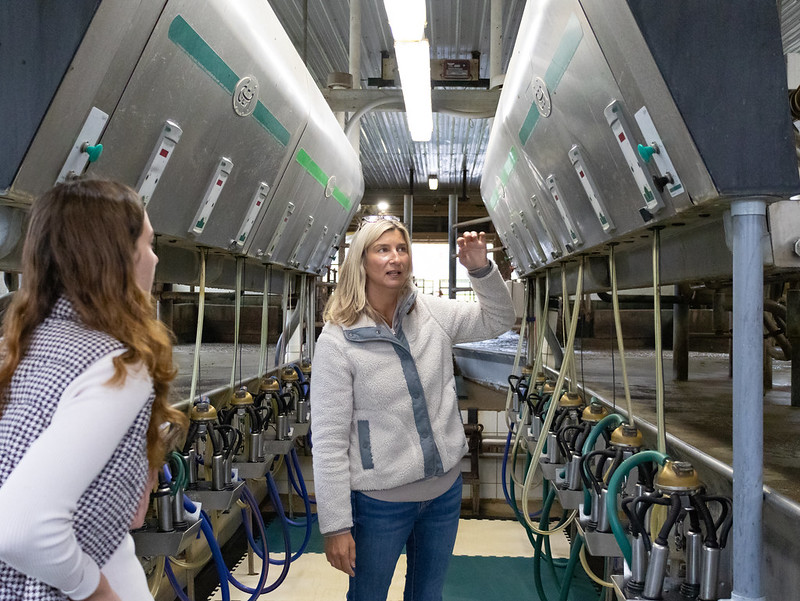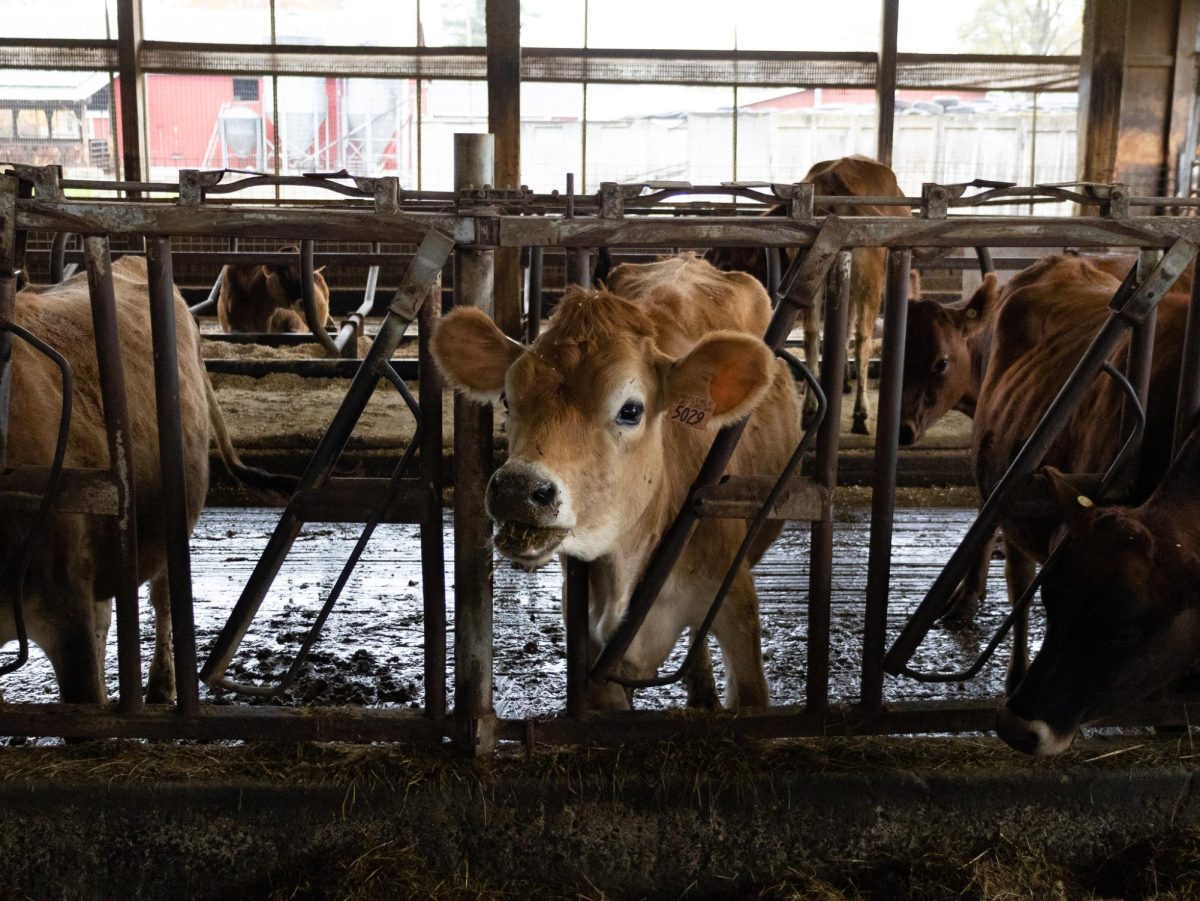The rich and creamy flavors of Mapleline’s dairy products have been enjoyed on the University of Massachusetts Amherst campus for years, offering a local and healthier option for students, faculty and staff.
The family-owned business raises Jersey cows on a 300-acre farm that spans across Hadley and Amherst and is owned by fifth-generation farmers Jessica Dizek and her sister, Jennifer Zina, who took over the business after their father John Kokoski.
“I knew it was a good opportunity,” Dizek said about co-owning Mapleline. “I was getting more involved in the dairy business and my sister was already working [at Mapleline] full-time … it was good for us.”
The sisters’ farm sells a variety of milk including whole milk, skim milk and flavored milk — like orange creamsicle — which can be found in several local markets including the Big Y in Amherst, Maker to Main in Worcester and at UMass dining locations.
UMass began a partnership with Mapleline over 10 years ago when the farm was “at its infancy” in direct marketing Mapleline’s products.
“As we were kind of growing and building up our herd, [UMass] was bringing us onto … different avenues on campus until we got to the point where we were able to take on more than one dining hall,” said Dizek.
Mapleline’s products can be found inside of Hampshire, Worcester and Berkshire dining commons. Individual 12-ounce strawberry, coffee and chocolate flavored milk can be purchased for $1.99 year-round inside the University’s retail locations, while Mapleline’s eggnog is available during UMass Fresh, a Thanksgiving dinner hosted on campus, for five dollars.
Garett DiStefano, the director of Residential and Retail Dining Services at UMass Amherst praised the eggnog, describing the beverage as “out of this world.” He is also a fan of Mapleline’s chocolate milk.
“I’m not recommending you drink chocolate milk every day but if you’re looking for a treat, a really good creamy chocolate milk, is phenomenal,” DiStefano said. “They have a high-quality product; they hold themselves to a high standard.”
The “high-quality product” DiStefano is referring to is from brown Jersey cows that Dizek explained as being “more superior” than regular milk due to its higher butterfat content and a higher percentage of protein and calcium over other breeds of dairy cattle.
Mapleline’s cows are also considered an A2 herd. According to David McClements, a distinguished professor of food science at UMass, “A2 milk is slightly different to A1 milk because the structure of one of the proteins-casein is different.” This means the product might be more digestible than A1 milk.
Each of Mapleline’s 130 milking cows creates about 60 pounds of raw milk a day, which is then separated from the cream when processed. Then, everything is pasteurized to create “a wonderful flavor” and the result is homogenized to prevent the cream from rising to the top of the container.

Before becoming a dairy farm, Mapleline Farms sold vegetables and tobacco from 1904 until the 1960s when John Kokoski, who was a teenager at the time, bought a Jersey cow as a 4H project.
Kokoski made the business “word of mouth” and sold his milk products wholesale to maintain control over Mapleline’s pricing, rather than sell through a co-op. Now his daughters are doing the same.
“The rest is history,” said Dizek. “He fell in love with the Jersey cow and kind of started growing this herd. He had this love for the dairy industry. We’re very untraditional as dairy farmers in the fact that we don’t sell to a large co-op.”
When UMass first connected with Mapleline, they were patient, allowing the farm to flourish at its own pace within the dairy industry.
“Their product has been held together very well for a number of years,” DiStefano said. “Mapleline is a strong farm, it’s a great partnership and we continue to love to work with them.”
Liesel Nygard can be reached at [email protected] and followed on X @LieselNygard.



















